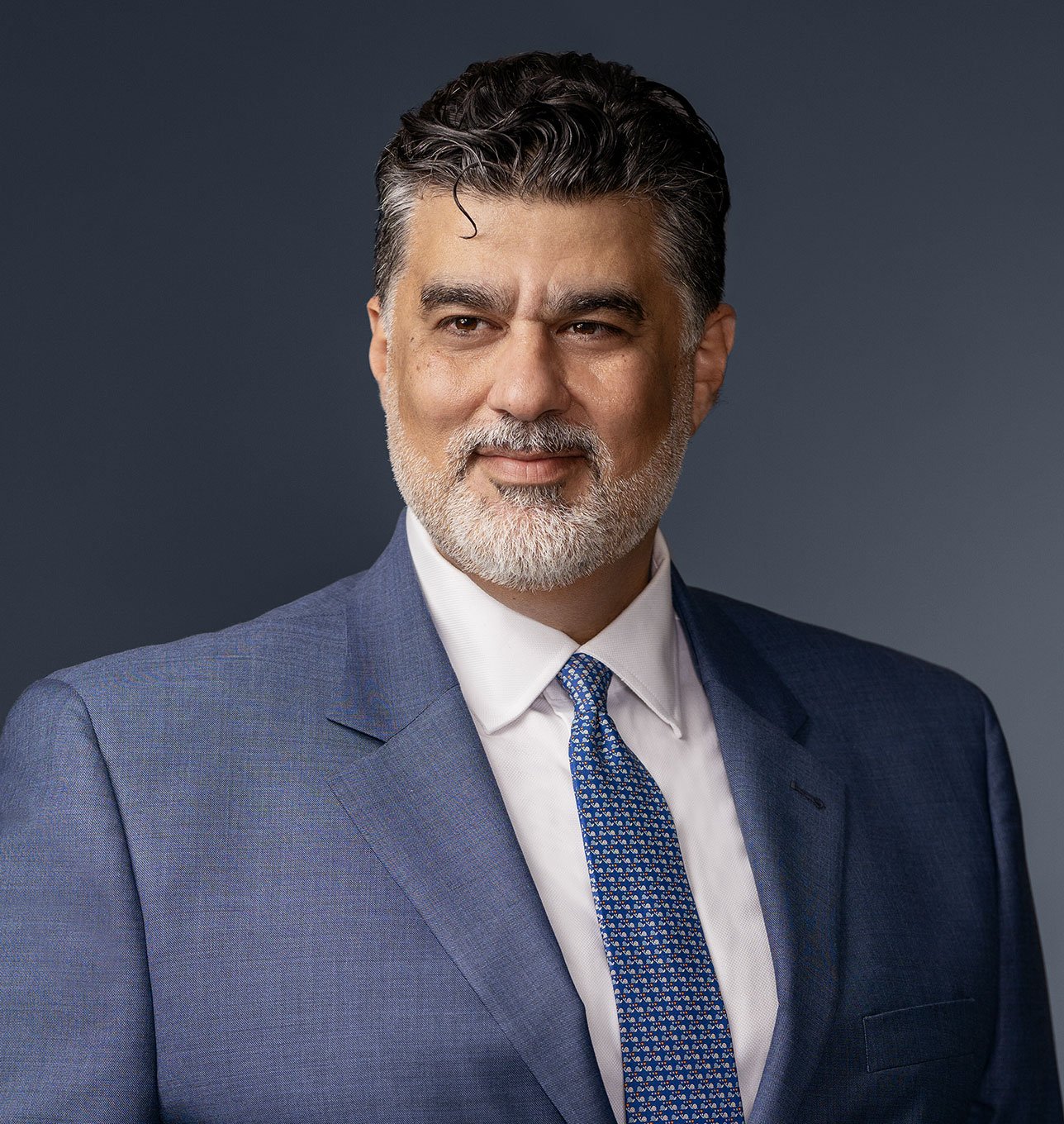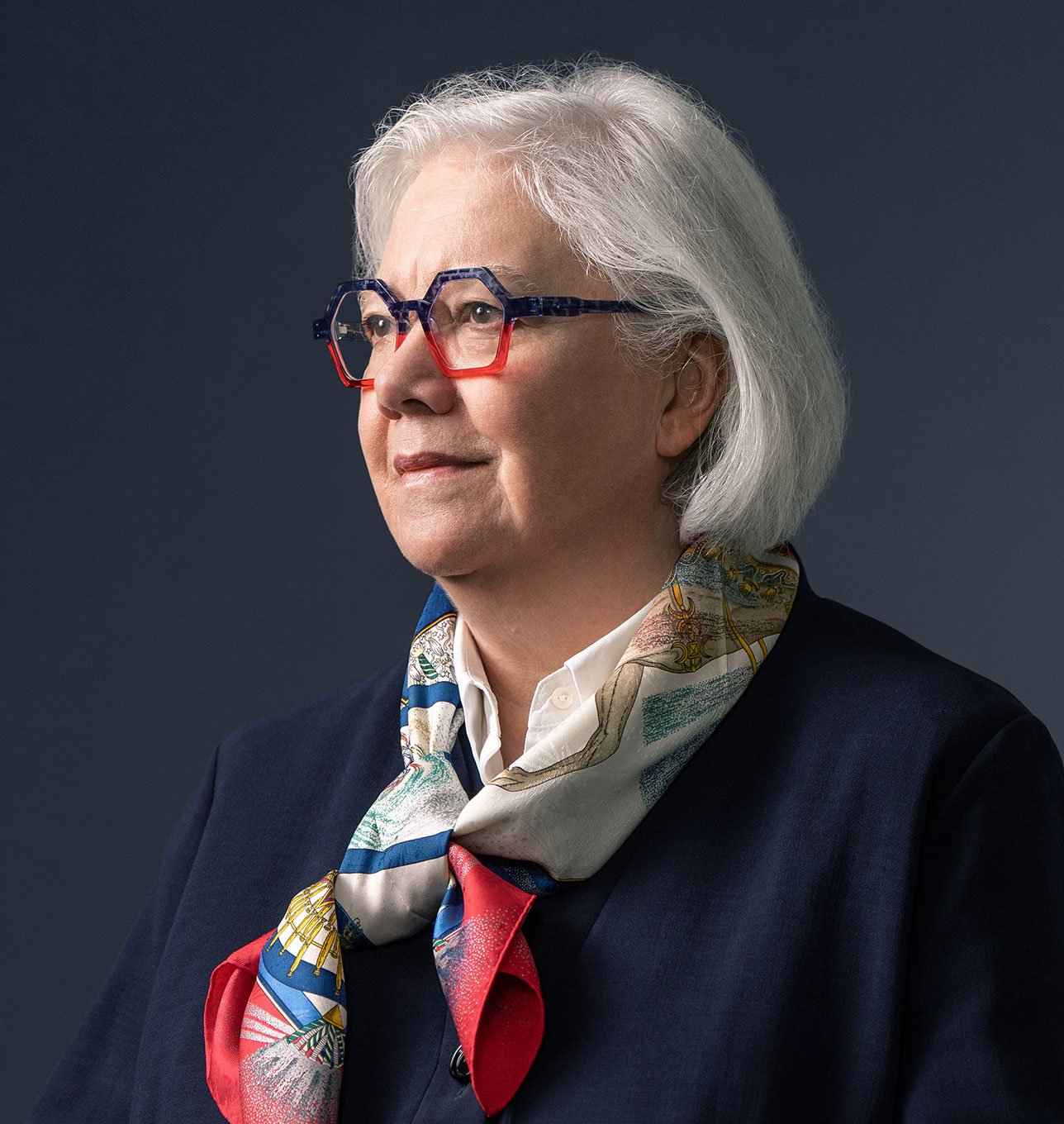2023年7月24日
Sanctions Weekly Update - Ukraine/Russia Conflict - July 24, 2023
US Sanctions | EU Sanctions | UK Sanctions | Russia/Ukraine Sanctions | Other Notable Developments
- US Departments of Justice, Commerce and Treasury Issue Tri-Seal Compliance Note on Voluntary Self-Disclosure of Potential Violations: On July 26, the Department of Justice (DOJ), the Department of Commerce’s Bureau of Industry and Security (BIS), and the Department of the Treasury’s Office of Foreign Assets Control (OFAC), issued a “Tri-Seal Compliance Note: Voluntary Self-Disclosure of Potential Violations” to summarize procedures for voluntarily self-disclosing violations of US sanctions and export control laws to DOJ, BIS, and OFAC. The Compliance Note explains that self-disclosing potential violations can provide significant mitigation of civil or criminal liability, while also alerting key national security agencies to activities that may pose a threat to the national security and foreign policy objectives of the United States. Read more>>
- OFAC Sanctions Malian Officials Facilitating Russia’s Wagner Group: On July 24, OFAC sanctioned three Malian transition government and military officials, pursuant to Executive Order 14024, for facilitating the deployment and expansion of the Russian private military company Wagner Group’s malicious activities in Mali. The Wagner Group has reportedly sought to transit material acquisitions to aid Russia’s war against Ukraine through Mali, and Wagner Group personnel have allegedly engaged in an ongoing series of serious criminal activities and human rights abuses in the country. Read more>> and Read more>>
- US Treasury Officials Discuss Sanctions with Swiss Commodity Stakeholders: On July 24, representatives of the US Treasury Department, the Swiss State Secretariat for Economic Affairs, and the Swiss commodities trading sector, met in Geneva as part of the multi-stage exchanges Treasury is conducting with its trading partners in several European countries, according to reports. The working meeting reportedly took place against a backdrop of US criticism of Swiss implementation of sanctions against Russia, with a focus on commodities trading and energy supplies for Europe over the next 18 months. The impact of sanctions against Russia on the commodities trading sector, as well as the future of trading, oil price caps and food security, were also discussed. Read more>>
- US Intelligence Says China Likely Helping Russia Evade Sanctions and Supplying Tech Used in Ukraine: On July 27, a newly released US intelligence report released by the Office of the Director of National Intelligence (ODNI) revealed that China is likely providing crucial support for Russia’s war effort in Ukraine by helping Moscow evade Western sanctions and supplying Moscow with key technology, according to reports. The assessment, and mandated by Congress, said China has dramatically expanded its purchase of Russian oil, gas and other energy exports since Moscow invaded Ukraine last year, as well as used its financial system to allow Russia “to conduct transactions unfettered of Western interdiction.” Beijing is also “probably supplying Moscow with key technology in dual use equipment used in Ukraine,” according to the ODNI report. Read more>> and Read more>>
- Biden Administration Announces Additional Security Assistance for Ukraine: On July 25, the Biden Administration authorized its 43rd drawdown of arms and equipment from Department of Defense stocks for Ukraine. This security assistance package, valued at up to $400 million, includes additional air defense munitions, artillery and other ammunition, armored vehicles, anti-armor weapons, and other equipment to help Ukraine counter Russia’s ongoing war of aggression. Read more>>, Read more>> and Read more>>
- US, Ukraine and EU Officials Chair Fifth Meeting of the Ukraine Donor Coordination Platform Steering Committee: On July 25, the fifth meeting of the Steering Committee of the Multi-agency Donor Coordination Platform for Ukraine was co-chaired in a virtual format by Deputy National Security Advisor for International Economics Mike Pyle, Deputy Prime Minister for Restoration of Ukraine Oleksandr Kubrakov, and European Commission Director-General for Neighborhood and Enlargement Negotiations Gert Jan Koopman. The group discussed progress to align donor and international financial institution (IFI) assistance with Ukraine’s priority needs, as well as ways to coordinate support for Ukraine’s reform agenda, including by aligning donor support around a consolidated view of Ukraine’s reform priorities. Read more>>
- USAID Delivers Autonomous Camera Drones to Ukraine to Document War Crimes: On July 27, the US Agency for International Development (USAID) announced the delivery of nine autonomous drones donated by Skydio, a leading US drone manufacturer, to the Office of the Prosecutor General of Ukraine. The Skydio 2+ drones have 4K cameras that will be used to take photo and video content to document war crimes, which will aid the Office of the Prosecutor General to document instances of destroyed civilian infrastructure, and evidence of human rights abuses on frontline communities and liberated territories. This will help the Prosecutor General’s team to pursue justice for survivors of war crimes and human rights abuses committed by the Russian armed forces. Read more>>
- Bipartisan Legislation Introduced in House to Reduce Reliance on Russian Agriculture: On July 25, Rep. Maxine Waters (D-CA), the ranking Democrat on US the House Financial Services Committee, and Rep. Zach Nunn (R-IA), announced the introduction of bipartisan legislation entitled, “No Russian Agriculture Act.” This legislation addresses Russia’s endeavors to strangle Ukraine’s economy by restricting the country’s exports, including those of its agricultural sector, and the bill would require the Secretary of the Treasury to direct US executive directors of International Financial Institutions (IFIs) to “use voice, vote, and influence of the US to encourage IFIs to support projects that decrease the reliance that countries have on Russian agricultural commodities, particularly fertilizer and grain; ensure the resilience of global grain supplies; and stimulate private investment in such projects.” The bill was noticed at a markup on July 26, 2023. Read more>> and Read more>>
- EU Adopts New Restrictive Measures Against Iran For Military Support To Syria and Russia: On Thursday, July 20, the EU adopted new restrictions prohibiting the export from the European Union to Iran of components used in the construction and production of Unmanned Aerial Vehicles (UAVs). It also provides for travel restrictions and asset freeze measures that could be imposed against persons responsible for, supporting or involved in Iran’s UAV’s programme. Council Decision and Commission’s Regulation were published in the Official Journal on 21 July. Read more>> and Read more>>
- EU Renews Sanctions On Russia’s Military Aggression Against Ukraine: On Thursday, July 20, the EU Council extended by six months, until 31 January 2024, the restrictive measures targeting specific sectors of the economy of the Russian Federation. The measures currently consist of a broad spectrum of sectoral measures, including restrictions on trade, finance, technology and dual-use goods, industry, transport and luxury goods, etc. Council Decision was published in the Official Journal on 21 July. Read more>>
- EU Bans Export of Aircraft Engines to Belarus in New Sanctions: This Wednesday, the European Union agreed to ban exports of battlefield equipment and aviation parts to Belarus, expanding sanctions on the Kremlin ally for its involvement in Russia's war against Ukraine. The sanctions are likely to enter into force on Monday and reportedly will mirror the sanctions against Russia. Belarus and Russia belong to the same customs union, therefore, exports of dual-use equipment to Belarus represents the high risk of circumvention of the export restrictions against Russia. Read more>>
- Five EU States Demand to Extend Import Ban on Ukrainian Agricultural Goods: Poland, together with Hungary, Slovakia, Bulgaria and Romania, is campaigning to block additional food imports from Ukraine until the end of the year. The five states say a big jump in imports depressed prices for their own farmers. The ban which already covers maize, wheat, rapeseed and sunflower seeds, might be extended to raspberries, poultry meat and eggs. Read more>>
- France Investigating Suspected Smuggling of Advanced Chip Technology to China and Russia: French magistrates have filed preliminary charges against two Chinese and two French citizens in an investigation of a leading chip supplier whose advanced technology with possible military uses was reportedly smuggled to China and Russia, allegedly skirting sanctions and export controls. The company's French manager is suspected of having personally delivered chips to Russian clients. Read more>>
- Inside EU, No Clear Financial Options to Reduce Ukraine Grain Transport Cost: Reporting this week stated that European Commission has no immediate money in its budget and no clear way to help finance the extra transport costs Ukrainian grain exports will face with the end of the Black Sea grain deal between Ukraine and Russia, leaving an opportunity for Moscow to cash in. Russia backed out of a U.N.-led Black Sea grain deal this month that allowed for the safe passage of Ukrainian cargo ships laden with cereals, oilseeds and wheat to reach global markets. Read more>>
- Ex-Ukraine Prosecutor Who Fled to Russia Wins EU Sanctions Appeal: Viktor Pshonka, a former top Ukrainian prosecutor who fled to Russia after the fall of his nation’s Kremlin-backed regime, won a European Union court appeal over his inclusion on the EU sanctions list. The EU’s General Court said Wednesday it annulled decisions to target Pshonka and his son, Artem, citing errors of assessment and doubts that they were based on a sufficiently “solid factual basis.” Read more>>
- UK Government Confirms in Parliament It Did Not Intend to Prohibit Non-UK Sanctions Compliance Advice: On July 19, 2023, the UK parliament debated the Russia (Sanctions) (EU Exit) (Amendment) (No. 3) Regulations 2023, the provisions restricting legal advisory services. The keys points discussed by the Ministers in the Commons and Lords were that:
- The purpose of the restrictions was to make it illegal for anyone working in the UK and for British nationals abroad “to advise on or facilitate certain commercial activities that would not be sanctioned by the UK Government if they involved a British national or entity or were taking place in the UK.
- It was not the intention of these regulations to prohibit legal advice to clients seeking to comply with UK and other sanctions regimes. Since that was a possible unintended consequence of the current drafting, the Government will issue a General Licence in the coming days then consider whether amendments to the regulations are appropriate and necessary. Read more>> and Read more>>
- US and UK Announce Inaugural Strategic Sanctions Dialogue: On July 20, 2023, the Foreign, Commonwealth and Development Office published a press release announcing the UK and US reaffirmed position that sanctions are a key tool of foreign policy, following the inaugural UK-US Strategic Sanctions Dialogue in Washington DC, delivering on the 2023 Atlantic Declaration commitment to strengthen cooperation on sanctions strategy. The Dialogue built on the OFSI-OFAC Enhanced Partnership, with renewed focus from both sides to explore opportunities to coordinate sanctions implementation. Read more>> and Read more>>
- Russia Imposes Travel Restrictions on UK Diplomats: On July 21, 2023, it was reported that Russia's foreign ministry has imposed tight travel restrictions on British diplomats working in the country. UK diplomats must give at least 5 days’ notice and provide extensive travel details if they want to leave a 120km free movement zone and Only the British ambassador and three senior diplomats are exempted from the measures. Read more>>
- UK Court Dismisses Challenge to Russia Sanctions Detention of Phi Superyacht: On July 21, 2023, the UK the High Court handed down a judgement in the Phi Superyacht case. Dismissing the application Sir Ross Cranston held that:
- Detention of the high value vessel was lawful and not done for an improper purpose and was consistent with encouraging Russia to cease its actions in Ukraine. Mr Naumenko was a person connected with Russia, and the fact that he was not a designated person was not relevant. The Russia Sanctions Regulation authorised sanctions having a broad and deep impact with consequences for those not personally involved in the activities being targeted.
- The detention was a proportionate restriction on property rights because:
- it had a legitimate aim (detention of Russian assets is part of the UK’s foreign policy response to Russia’s invasion of Ukraine);
- it was rationally connected with that aim because Mr Naumenko was connected with Russia and very wealthy, and it was reasonable to infer that this would indirectly pressure the regime – the judge accepted that there were “likely direct and indirect links between Mr Naumenko’s wealth, economic activities, and the Russian state” and that it was rational to think that he is the sort of individual economic actor on whom sanctions could affect the broad and deep impact which Parliament intended via the connected with Russia powers.
- The judge accepted the Government’s case that in considering whether a “fair balance” had been struck it need not demonstrate the efficacy of each individual detention (or designation) decision in order to maintain a sanctions measure, that demonstrating that any one decision would have the desired foreign policy outcome is “not an issue for this court”, and that the Government could take into account “signalling”. Read more>>
- OFSI Updates Guidance on Refusing Licences: On July 26, 2023, OFSI general guidance on financial sanctions, amending section 6.12, “Refusal of a Licence”. The section now states that, if OFSI refuses to issue a licence, the proposed transaction or activities may not be lawful. OFSI will write to you giving reasons for refusing your application. OFSI may also refuse your application if you do not require a licence for the proposed transaction or activities. If you have had an application for a licence refused, you have the following options:
- re-apply with new or supplementary evidence or new supporting arguments;
- re-apply under a different derogation (where applicable); or
- seek to challenge the decision in court. Read more>>
- UK Amends General Licence for Mongolia Energy Payments: On July 27, 2023, the Office of Financial Sanctions Implementation amended the General Licence (GL) INT/2022/2085212, which allow payments to a sanctioned bank or any subsidiary for the purpose of making energy available for use in Mongolia. The notice was amended to extend the duration of the GL, which will now expire on 14 August 2025. The sanctioned banks include:
- Credit Bank of Moscow;
- Gazprombank;
- Sberbank; and
- Rosbank PJSC. Read more>>
- Ukraine Completes Nationalisation of Russian-owned Sense Bank (Formerly Alfa-Bank Ukraine): This week, the Ukrainian government completed the takeover of Sense Bank (formerly Alfa-Bank Ukraine), Ukraine’s top commercial lender, and appointed a new supervisory board and management team. Sense Bank’s former co-owner Mikhail Fridman is currently under international sanctions and was arrested in the U.K. in December 2022 on suspicion of fraud-related offenses.Read more>>
- Ukrainian Climate Organizations Call on Europe to Ban Russian LNG Imports: Eighteen Ukrainian climate organisations have asked the European Commission to ban imports of Russian liquified natural gas (LNG) and petroleum gas (LPG) in a bid to slash the country’s revenues from continued fossil fuel exports. In 2022, the EU banned Russian crude oil shipments and coal imports following the war in Ukraine, while Russia significantly reduced the pipeline gas it supplied to Europe. However, liquified fossil gas (LNG) shipments from Russia increased. Read more>>
- Russia Increases Duties on Imported Wine and Fish from “Unfriendly Countries”: The Russian government raised duties on imports of wine, glycerine, plywood and polyurethane construction materials from so-called "unfriendly" countries. Goods from fish and seafood from "unfriendly" countries are under imports ban until the end of 2023. Read more>>
- Moscow Seeks ‘Super Priority’ over Exiting Strategic Foreign Companies: On July 25, 2023, it was reported that Russia will receive super priority rights in acquiring the assets of strategic foreign companies that leave the country. The list of strategic companies includes around 200 entities. In addition to strategic firms, President Vladimir Putin’s decree purportedly says state priority rights also extend to companies that have shares owned by the federal government. Read more>>
- Russia Loses Record $253 Billion in Wartime Capital Flight: A record $253 billion has been pulled out of Russia since the start of its full-scale invasion of Ukraine in 2022, the Russian Central Bank has said. “The flight of $239 billion from Russia last year, including $13 billion in the pre-invasion month of January, was four times the amount that was pulled out of the country in 2021, according to the analysis. The rate of capital flight relative to GDP hit 13% in 2022. Read more>>
- Russia Pushes Plan to Supply Grain to Africa and Cut Out Ukraine: Russia is pushing a plan to supply grain to Africa and cut Ukraine out of the global market after Moscow’s withdrawal this week from a UN-backed deal. Reportedly, President Vladimir Putin has proposed a replacement initiative whereby Qatar would pay Moscow to ship Russian grain to Turkey, which would then distribute the crop to “countries in need”. Neither Qatar nor Turkey have agreed to the idea, which Moscow has not yet raised to a formal level. Read more>>
- Putin Promises African Leaders Free Frain Despite 'Hypocritical' Western Sanctions: Russian President Vladimir Putin on Thursday told African leaders he would gift them tens of thousands of tons of grain despite Western sanctions, which he said made it harder for Moscow to export its grain and fertilisers. Speaking at a Russia-Africa summit in St Petersburg, Putin said Russia was ready to replace Ukrainian grain exports to Africa on both a commercial and aid basis to fulfil what he said was Moscow's critical role in global food security. Read more>>
- Foreigners with Russian Residence Permits Able to Unfreeze Assets Frozen by The Russian Government: Foreigners who have received a Russian residence permit will be able to “unblock” money in C accounts, as well as sell Russian securities, said the Central Bank of Russia. In addition, foreigners with a Russian residence permit will not subject to an order prohibiting Russian brokers from selling securities on behalf of foreign clients. The termination of the “C” account mode means that a foreign citizen with a Russian residence permit can freely dispose of payments received from Russian issuers, including transferring them abroad. Read more>>
- Russia Places Second ICC Judge on Wanted List: Russia has placed International Criminal Court (ICC) Judge Tomoko Akane on its wanted list months after the court issued an arrest warrant for President Vladimir Putin for war crimes, state media reported Thursday. The Russian Interior Ministry search database lists Akane’s personal information, according to the state-run news agency TASS, but does not specify which crime she is accused of. In May, Russia’s Interior Ministry also placed ICC Prosecutor Karim Khan on its wanted list. Read more>>
- Russia Hikes Interest Rates for First Time since Post-Invasion Fallout: On July 21, 2023, it was reported that Russia’s Central Bank had hiked interest rates for the first time in 16 months, as Moscow’s spending on its invasion of Ukraine, shortages across the labor market and a sharp fall in the value of the ruble trigger fresh concerns over inflation. The regulator raised its key rate from 7.5% to 8.5% — ahead of analysts’ expectations for a more modest increase to 8%. The move is the Central Bank’s first rate rise since four days after the invasion of Ukraine, when it hiked rates to 20% in an emergency decision as it scrambled to stabilize the Russian economy. After a series of cuts in 2022, the bank had held rates at 7.5% since September. Read more>>
- Wintershall Begins Separation of Western Business from Companies in Russia: On July 27, 2023, it was reported that Germany oil and gas company Wintershall Dea continues to withdraw from Russia. Wintershall is discussing its withdrawal with Gazprom. Wintershall was one of the investors in Nord Stream 2 (owns 15.5%) together with British Shell, Austrian OMV, French Engie and German Uniper, which financed half of its value (the project was estimated at $ 11 billion, and Wintershall Dea invested €730 million). Read more>>
- Discount on Russian Oil to Brent Reduced to Less Than $15 Per Barrel: Russia managed to reduce the discount on Russian oil to Brent to less than $15 per barrel, according to the Russian Minister of Energy Nikolai Shulginov. According to the minister, Russia managed to fully provide finance and insurance for the sea transportation of oil. He also said that Moscow is currently discussing the creation of a new insurance company with friendly countries. Read more>>
- Price of Urals Oil Exceeded $65 Per Barrel for The First Time since The Beginning of The Year: On July 26, 2023, it was reported that price of Russian Urals oil reached $25.65 per barrel. The last time Urals cost more than $65 was in November 2022. The price cap of $60, set by the EU and other Western countries at the end of 2022, was exceeded by Urals on July 12. On July 3, the Ministry of Finance reported that the average price of Urals crude oil in January-June 2023 was $52.17 per barrel, and in June its cost was $55.28 per barrel. Read more>>
- Sberbank Chairman Herman Gref Responds to Proposal from Central Bank of Russia to Abolish the Commission for Transfers from Sberbank: On July 26, 2023, it was reported that the Bank of Russia suggested that Sberbank abolish commissions for transfers to other banks, pointing out that some have already done so. The head of Sberbank, Herman Gref, responded that he does not believe that anyone "suffers from this", because most transfers are made free of charge. Read more>>
- New Zealand Imposes Further Sanctions on Russian Military Support and Belarusian Financial Sector: On July 21, New Zealand’s Foreign Affairs Minister Nanaia Mahuta announced a new tranche of 23 sanctions as part of New Zealand ongoing response to Russia’s illegal and unjustified assault on Ukraine. The sanctions target 3 individuals involved in unlawful deportation of Ukrainian children to Russia; 14 individuals and entities of the Russian military-industrial complex; and 6 Belarusian entities including Belarus banks in response to the country’s escalating support towards Russia’s aggression. Read more>>
- Swiss Bank Julius Baer to End Business with Russian Clients by 2024: On July 25, Reuters reported that Swiss private bank Julius Baer will end all business with clients based in Russia, according to a letter addressed to the said clients and seen by the media outlet. While the letter said the bank will cease business with Russian-domiciled clients by no later than December 31, 2023, wealth management activities such as mandates managing clients' investments, credit agreements and credit card contracts, would be terminated by the end of September. Read more>>
- Russia Defies Sanctions by Selling Oil above Price Cap: On July 23, The Wall Street Journal reported that Russia’s most coveted Urals crude had traded above the Western price cap of $60 per barrel, the first time since the novel sanctions policy was imposed last December. Experts say this shows that the Kremlin has succeeded, at least in part, in adjusting to the restrictions originally intended to starve Moscow of funds for the war in Ukraine. Read more>>
- Reporting Suggests China Secretly Sending Vast Amounts of Military-Capable Hardware to Russia: On July 24, Politico reported that a number of Chinese companies are found bypassing Western sanctions and shipping vast amounts of military-capable hardware to Russia, despite Beijing’s repeated assurances to the West that it is not providing lethal assistance to the country for use in Ukraine. Read more>>
- Maldives Popular for Shipping Chips to Russia in Circumvention of US Restrictions: On July 21, a Nikkei Asia investigation revealed that a total of $53 million worth of US-made semiconductors transited through Maldives to Russia within one year after the country invaded Ukraine, making the Indian Ocean island nation a popular transit point for shipments that circumvent Western sanctions against Russia. Read more>>
- Obscure Traders Ship Half Russia’s Oil Exports to India, China after Sanctions: On July 27, Reuters reported that trading sources and data show a recent surge in little-known trading firms being relied on by Moscow to export large volumes of crude exports to Asia, as sanctions over the Ukraine war led major oil firms and commodity houses to withdraw from business with producers in Russia. These companies have shipped at least of half of Russia’s overall crude and refined products exports this year, with some of these firms having no record of involvement in the business prior to the Ukraine war, marking a major departure from the handful of well-established oil majors such as BP and Shell, as well as top trading houses including Vitol, Glencore, Trafigura and Gunvor, that handled Russian crude and oil products for decades. Read more>>
- Unilever Announces "Least Bad" Solution to Continue Operations in Russia: British food, household and personal care maker Unilever has decided to continue operations in Russia on a limited basis. Unilever could abandon its business in Russia, but in this case, the top manager believes, this would lead to the nationalization of the company, "given all the events that have occurred recently." As another possible scenario, Schumacher called the sale of business in Russia, but, according to him, the company could not find a suitable option for it. Read more>>
- Norwegian Norsk Hydro Asks London Metal Exchange to Stop Trading and Storage of Russian Aluminium: The Norwegian company Norsk Hydro has asked the London Metal Exchange (LME) to reconsider its decision not to ban the sale of Russian aluminium from its warehouses. Norsk Hydro also asked if the LME has consulted with the British Financial Conduct Authority (FCA) regarding the risks associated with the presence of Russian metal in warehouses and trading it through the exchange system. Russian aluminium accounts for up to 80% of all stocks of this metal on the exchange, compared to 68% in May, 41% in January and less than 18% last October. Read more>>








